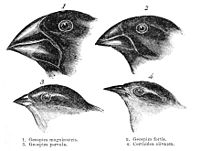
Photo from wikipedia
INTRODUCTION Mood disorders are associated with fronto-limbic structural and functional abnormalities and deficits in omega-3 polyunsaturated fatty acids including eicosapentaenoic acid (EPA) and docosahexaenoic acid (DHA). Emerging evidence also suggests… Click to show full abstract
INTRODUCTION Mood disorders are associated with fronto-limbic structural and functional abnormalities and deficits in omega-3 polyunsaturated fatty acids including eicosapentaenoic acid (EPA) and docosahexaenoic acid (DHA). Emerging evidence also suggests that n-3 PUFA, which are enriched in fish oil, promote cortical plasticity and connectivity. The present study performed a graph-based connectome analysis to investigate the role of n-3 PUFA in emotion-related network organization in medication-free depressed adolescent bipolar offspring. METHODS At baseline patients (n = 53) were compared with healthy controls (n = 53), and patients were then randomized to 12-week double-blind treatment with placebo or fish oil. At baseline and endpoint, erythrocyte EPA+DHA levels were measured and fMRI scans (4 Tesla) were obtained while performing a continuous performance task with emotional and neutral distractors (CPT-END). Graph-based analysis was used to characterize topological properties of large-scale brain network organization. RESULTS Compared with healthy controls, patients exhibited lower erythrocyte EPA+DHA levels (p = 0.0001), lower network clustering coefficients (p = 0.029), global efficiency (p = 0.042), and lower node centrality and connectivity strengths in frontal-limbic regions (p<0.05). Compared with placebo, 12-week fish oil supplementation increased erythrocyte EPA+DHA levels (p<0.001), network clustering coefficient (p = 0.005), global (p = 0.047) and local (p = 0.023) efficiency, and node centralities mainly in temporal regions (p<0.05). LIMITATIONS The duration of fish oil supplementation was relatively short and the sample size was relatively small. CONCLUSIONS These findings provide preliminary evidence that abnormalities in emotion-related network organization observed in depressed high-risk youth may be amenable to modification through fish oil supplementation.
Journal Title: Journal of affective disorders
Year Published: 2021
Link to full text (if available)
Share on Social Media: Sign Up to like & get
recommendations!